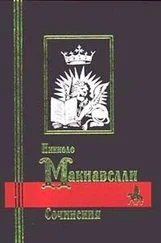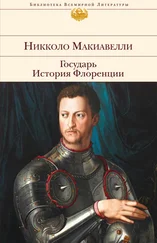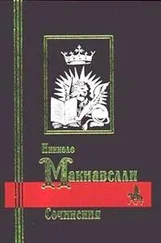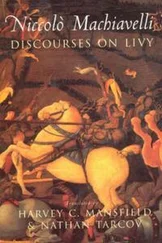Chapter X
Concerning the Way in Which the Strength of All Principalities Ought to be Measured
It is necessary to consider another point in examining the character of these principalities: that is, whether a prince has such power that, in case of need, he can support himself with his own resources, or whether he has always need of the assistance of others. And to make this quite clear I say that I consider those who are able to support themselves by their own resources who can, either by abundance of men or money, raise a sufficient army to join battle against any one who comes to attack them; and I consider those always to have need of others who cannot show themselves against the enemy in the field, but are forced to defend themselves by sheltering behind walls. The first case has been discussed, but we will speak of it again should it recur. In the second case one can say nothing except to encourage such princes to provision and fortify their towns, and not on any account to defend the country. And whoever shall fortify his town well, and shall have managed the other concerns of his subjects in the way stated above, and to be often repeated, will never be attacked without great caution, for men are always adverse to enterprises where difficulties can be seen, and it will be seen not to be an easy thing to attack one who has his town well fortified, and is not hated by his people.
The cities of Germany are absolutely free, they own but little country around them, and they yield obedience to the emperor when it suits them, nor do they fear this or any other power they may have near them, because they are fortified in such a way that every one thinks the taking of them by assault would be tedious and difficult, seeing they have proper ditches and walls, they have sufficient artillery, and they always keep in public depots enough for one year's eating, drinking, and firing. And beyond this, to keep the people quiet and without loss to the state, they always have the means of giving work to the community in those labours that are the life and strength of the city, and on the pursuit of which the people are supported; they also hold military exercises in repute, and moreover have many ordinances to uphold them.
Therefore, a prince who has a strong city, and had not made himself odious, will not be attacked, or if any one should attack he will only be driven off with disgrace; again, because that the affairs of this world are so changeable, it is almost impossible to keep an army a whole year in the field without being interfered with. And whoever should reply: If the people have property outside the city, and see it burnt, they will not remain patient, and the long siege and self–interest will make them forget their prince; to this I answer that a powerful and courageous prince will overcome all such difficulties by giving at one time hope to his subjects that the evil will not be for long, at another time fear of the cruelty of the enemy, then preserving himself adroitly from those subjects who seem to him to be too bold.
Further, the enemy would naturally on his arrival at once burn and ruin the country at the time when the spirits of the people are still hot and ready for the defence; and, therefore, so much the less ought the prince to hesitate; because after a time, when spirits have cooled, the damage is already done, the ills are incurred, and there is no longer any remedy; and therefore they are so much the more ready to unite with their prince, he appearing to be under obligations to them now that their houses have been burnt and their possessions ruined in his defence. For it is the nature of men to be bound by the benefits they confer as much as by those they receive. Therefore, if everything is well considered, it will not be difficult for a wise prince to keep the minds of his citizens steadfast from first to last, when he does not fail to support and defend them.
Chapter XI
Concerning Ecclesiastical Principalities
It only remains now to speak of ecclesiastical principalities, touching which all difficulties are prior to getting possession, because they are acquired either by capacity or good fortune, and they can be held without either; for they are sustained by the ancient ordinances of religion, which are so all–powerful, and of such a character that the principalities may be held no matter how their princes behave and live. These princes alone have states and do not defend them; and they have subjects and do not rule them; and the states, although unguarded, are not taken from them, and the subjects, although not ruled, do not care, and they have neither the desire nor the ability to alienate themselves. Such principalities only are secure and happy. But being upheld by powers, to which the human mind cannot reach, I shall speak no more of them, because, being exalted and maintained by God, it would be the act of a presumptuous and rash man to discuss them.
Nevertheless, if any one should ask of me how comes it that the Church has attained such greatness in temporal power, seeing that from Alexander backwards the Italian potentates (not only those who have been called potentates, but every baron and lord, though the smallest) have valued the temporal power very slightly—yet now a king of France trembles before it, and it has been able to drive him from Italy, and to ruin the Venetians—although this may be very manifest, it does not appear to me superfluous to recall it in some measure to memory.
Before Charles, King of France, passed into Italy, [19] Charles VIII invaded Italy in 1494.
this country was under the dominion of the Pope, the Venetians, the King of Naples, the Duke of Milan, and the Florentines. These potentates had two principal anxieties: the one, that no foreigner should enter Italy under arms; the other, that none of themselves should seize more territory. Those about whom there was the most anxiety were the Pope and the Venetians. To restrain the Venetians the union of all the others was necessary, as it was for the defence of Ferrara; and to keep down the Pope they made use of the barons of Rome, who, being divided into two factions, Orsini and Colonnesi, had always a pretext for disorder, and, standing with arms in their hands under the eyes of the Pontiff, kept the pontificate weak and powerless. And although there might arise sometimes a courageous pope, such as Sixtus, yet neither fortune nor wisdom could rid him of these annoyances. And the short life of a pope is also a cause of weakness; for in the ten years, which is the average life of a pope, he can with difficulty lower one of the factions; and if, so to speak, one people should almost destroy the Colonnesi, another would arise hostile to the Orsini, who would support their opponents, and yet would not have time to ruin the Orsini. This was the reason why the temporal powers of the pope were little esteemed in Italy.
Alexander the Sixth arose afterwards, who of all the pontiffs that have ever been showed how a pope with both money and arms was able to prevail; and through the instrumentality of the Duke Valentino, and by reason of the entry of the French, he brought about all those things which I have discussed above in the actions of the duke. And although his intention was not to aggrandize the Church, but the duke, nevertheless, what he did contributed to the greatness of the Church, which, after his death and the ruin of the duke, became the heir to all his labours.
Pope Julius came afterwards and found the Church strong, possessing all the Romagna, the barons of Rome reduced to impotence, and, through the chastisements of Alexander, the factions wiped out; he also found the way open to accumulate money in a manner such as had never been practised before Alexander's time. Such things Julius not only followed, but improved upon, and he intended to gain Bologna, to ruin the Venetians, and to drive the French out of Italy. All of these enterprises prospered with him, and so much the more to his credit, inasmuch as he did everything to strengthen the Church and not any private person. He kept also the Orsini and Colonnesi factions within the bounds in which he found them; and although there was among them some mind to make disturbance, nevertheless he held two things firm: the one, the greatness of the Church, with which he terrified them; and the other, not allowing them to have their own cardinals, who caused the disorders among them. For whenever these factions have their cardinals they do not remain quiet for long, because cardinals foster the factions in Rome and out of it, and the barons are compelled to support them, and thus from the ambitions of prelates arise disorders and tumults among the barons. For these reasons his Holiness Pope Leo [20] Pope Leo X was the Cardinal de' Medici.
found the pontificate most powerful, and it is to be hoped that, if others made it great in arms, he will make it still greater and more venerated by his goodness and infinite other virtues.
Читать дальше












